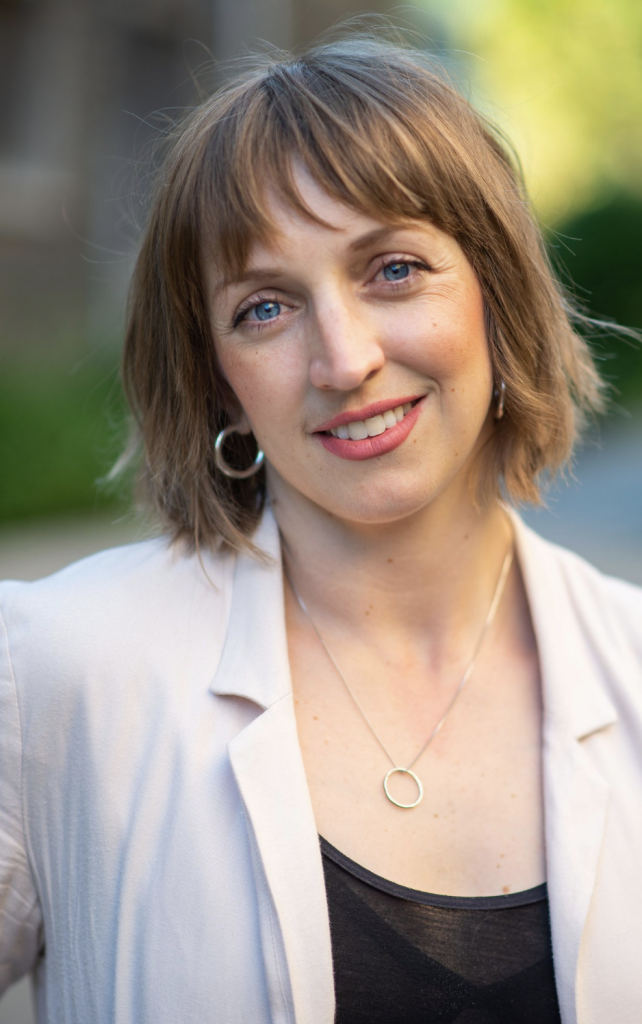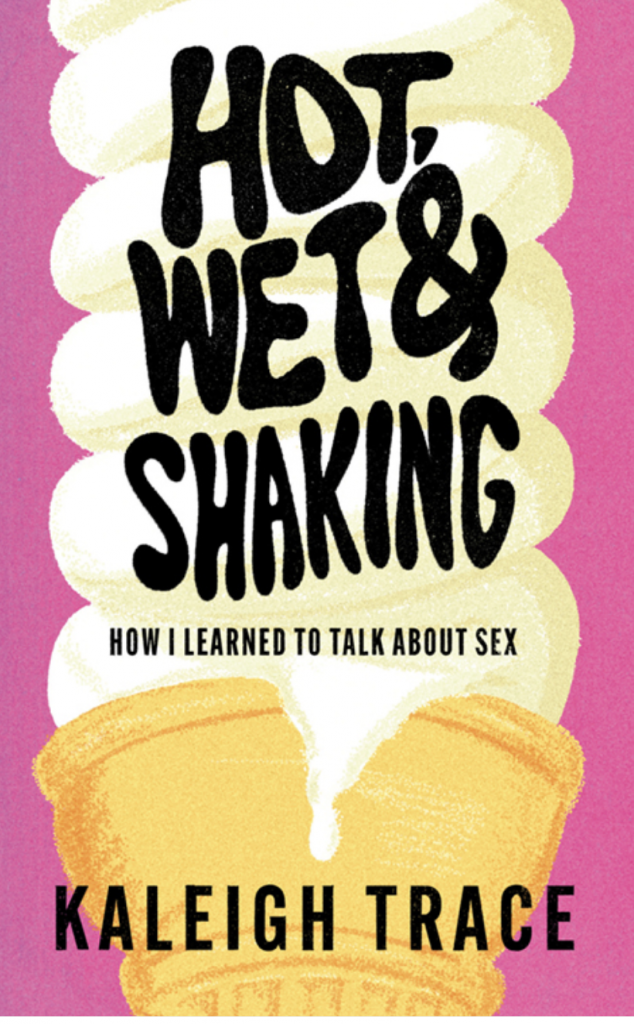Finding Fulfillment While Living with Cancer
- Therapist and sex expert Kaleigh Trace, who grew up in the mid-2000s working at an education-based sex and book shop in her early 20s, was “indifferent to sex” and “feeling undesirable” as someone who didn’t fit in. She didn’t look like Britney Spears or Christina Aguilera, the top icons at the time. But one day it clicked – she didn’t have to be “hot” to experience pleasure.
- Kaleigh’s exploration of sex flourished from there and she went on to study the topic professionally — then she was diagnosed with advanced stage cancer. Now, she continues her journey of fulfillment through sex and intimacy to continue feeling joy in her life.
- Whether it is trying new things in the bedroom or seeking help from a sex therapist or peers in a support group, there are many options for women and men seeking all different types of support to reclaim intimacy despite their diagnosis.
Therapist and sex educator Kaleigh Trace, who grew up in the mid-2000s working at an education-based sex and book shop in her early 20s, was “indifferent to sex” and “feeling undesirable” as someone who didn’t fit in. She didn’t look like Britney Spears or Christina Aguilera, the top icons at the time. But one day it clicked – she didn’t have to be “hot” to experience pleasure. Kaleigh’s exploration of sex flourished from there and she went on to study the topic professionally — then she was diagnosed with cancer.
Read More
And lo and behold, she was becoming a sex expert.
After meeting a known book publisher, she pitched him. Cut to Hot, Wet & Shaking, Kaleigh’s first memoir of essays getting published.
RELATED: ‘What About Sex?’ — Cancer Survivor Mareva Godfrey on Her Sex Life After Treatment
“At its core, it’s a book about what it means to fall in love with your body, particularly someone with a disability,” she said in an as told interview to Toronto Life. “It’s also about learning how to have good sec and lots of it. When it came out, I was on the cover of the local paper, and I got to tour the book across the country. Even though its contents are very revealing and personal, I had no regrets.”
Kaleigh continued working at the shop, Venus Envy, until her early 30s, then she pursued her masters of science studying sex and healing from sexual trauma at the University of Guelph after moving to Toronto. She then opened up her own private practice.
But in October of 2022, she discovered that she had cancer. Cancer that was “rapidly growing in my bladder.” Tragically, it was caught too late, and after undergoing some tests, her medical team told her that it was advanced.
Stepping Back to ‘Re-Examine’ Her Life
“Whether I wanted to or not, cancer forced me to take a step back and re-examine how I’d lived my life,” Kaleigh said, now in her late 30s, noting that she’s always been “energetic” so most of her career and personal life has “revolved around helping other people — as a sex educator, a sex partner, a therapist.”
But with cancer, she said her body “can’t keep up with that lifestyle.”
But then her publisher called and brought up a potential ten-year anniversary re-publication of her memoir. Though it seemed daunting to re-share and relive all of that, as “it’s more challenging now,” she thought, “Why the hell not?”

Living with Advanced Stage Cancer
Understandably, Kaleigh says facing her mortality has been a “devastating process, but I’m trying to reframe my circumstances.”
Most importantly, Kaleigh says she still experiences “so much joy, whether through sex or through spending time with friends and family.”
“Back when I wrote my book, it felt revolutionary for me to be so publicly adoring of myself.”
Overall, Kaleigh has learned that life is “full of both joy and profound suffering.” And when she’s honest — and in tune with herself and others, she feels comforted through her grief.
How to Reclaim Intimacy
Whether it is trying new things in the bedroom or seeking help from a sex therapist or peers in a support group, there are many options for women and men seeking all different types of support to reclaim intimacy despite their diagnosis. Kaleigh happened to have a head start on all of the above, and she still struggled.
It’s important to remember that intimacy doesn’t have to equal sex if you aren’t missing sex to begin with. Dr. Kimberly Resnick, a gynecologic oncologist at MetroHealth in Cleveland, previously told SurvivorNet that simply by having a partner, women can have better outcomes. “And it likely has to do with being able to have some shared intimacy with someone and not feeling alone.”
And it’s “ok that you don’t feel like having sex,” Dr. Resnick clarified.

If sex is a big part of the intimacy factor in your relationship and you want to start having it again, there are several solutions your doctor can help you with. Dr. Resnick recommended doing whatever you can to help you relax. Make sure you’re in a comfortable environment. The first time having sex after a hiatus is not the time to get adventurous. However, sex toys can help you think a little outside of the box.
“A vaginal dilator or other sex toy prior to intercourse can help you learn how to relax the vaginal muscles again,” says Dr. Resnick.
If you’re dealing with vaginal dryness and are nervous about sex being painful, make sure to use enough lubricant. If you’re unsure which type to buy: water-based, oil-based, or silicone-based, ask your doctor for advice (as not everyone is an expert like Kaleigh).
Finally, make sure to discuss intimacy and sex with your doctor, and don’t be shy about bringing it up if they don’t do so proactively. This is part of your treatment, and your doctor should be able to help you cope with the emotional and physical effects of reclaiming intimacy.
The Mind-Body Connection: Cancer and Sex
Cancer does not mean the end of your sex life — no matter what type you have. One of the most important things to remember as you think about sexuality after cancer, is the mind-body connection. Dr. Jeanne Carter, a sexual psychologist at Memorial Sloan Kettering Cancer Center, said that taking care of cognitive factors when it comes to sexuality is a huge part of the healing process.
“A lot of women have fear of pain, fear of performance, their partners can have fear of hurting their partner … but there is a way to bring fun and pleasure back.”
Dr. Jeanne Carter, a sexual psychologist at Memorial Sloan Kettering Cancer Center, says cancer doesn’t have to end your sex life
Dr. Carter also said that the most important part of the process is re-learning how to connect with yourself and your feelings. “There’s was actually a really great study … where they did a mindfulness intervention, which helped them feel more connected to their body, and actually helped them to learn how to relax in order to connect to their body.”
Learn more about SurvivorNet's rigorous medical review process.

